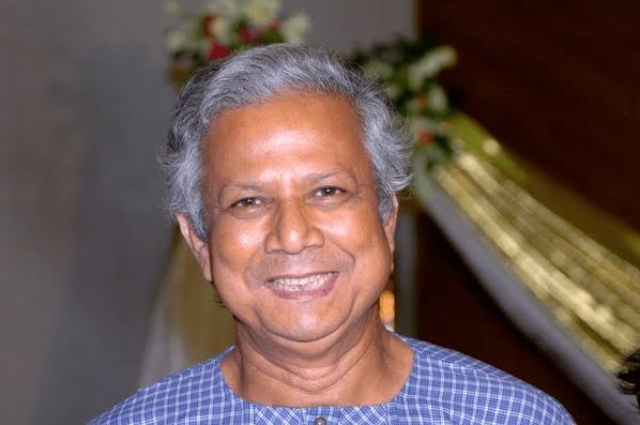
Bangladesh is in the throes of a deepening political crisis as speculation about Mohammad Yunus, the interim government’s chief advisor, considering resignation has sent shockwaves across the nation. The Nobel laureate’s reported discontent has sparked intense debates among political parties, civil society, and the business community, raising critical questions about the stability of the interim administration and the country’s democratic future. With protests, demands for resignations, and accusations of political sabotage dominating the discourse, Bangladesh stands at a crossroads. This article delves into the complexities of the unfolding situation, exploring the key players, their motivations, and the broader implications for the nation’s political landscape.
The Spark: Yunus’ Resignation Rumors
The political storm began when rumors surfaced that Mohammad Yunus, the interim government’s chief advisor, was contemplating stepping down. These speculations gained traction after Nahid Islam, the coordinator of the National Citizens Party (NCP), met Yunus at his official residence, Yamuna, on Thursday. In an interview with BBC Bangla, Islam revealed that he sought the meeting after receiving information about Yunus’ potential resignation. The news sent ripples through Bangladesh’s already volatile political environment, prompting varied reactions from political factions, civil society, and the public.
During their discussion, Yunus reportedly expressed deep concerns about his ability to lead effectively under the current circumstances. He told Islam that he was appointed as chief advisor following a collective movement that ousted the previous government. However, the ongoing protests, political divisions, and attempts to “hold him hostage” were making it impossible for him to function. Yunus emphasized that without consensus among political parties, he could not continue in his role. This revelation has heightened fears of a leadership vacuum at a time when Bangladesh is grappling with economic challenges, social unrest, and the need for democratic reforms.
Nahid Islam’s Appeal and the NCP’s Role
Nahid Islam, a key figure in the NCP—a youth-led party that played a pivotal role in the July 2024 uprising—urged Yunus to reconsider his stance. Islam appealed to Yunus to remain in office, emphasizing that the chief advisor’s leadership was crucial to fulfilling the aspirations of the movement that brought the interim government to power. He stressed the importance of national security, public expectations, and the country’s future, urging Yunus to stay resilient despite the mounting pressures.
Islam’s intervention highlights the NCP’s growing influence in Bangladesh’s political arena. Formed in the wake of last year’s rebellion, the NCP has positioned itself as a voice for the youth and a proponent of systemic change. However, the party’s aggressive rhetoric has also stirred controversy. A senior NCP leader recently labeled three interim government advisors—legal advisor Professor Asif Nazrul, finance advisor Salahuddin Ahmad, and planning advisor Dr. Wahiduddin Mahmood—as “BNP spokespersons.” The leader warned that if the government failed to implement proposed reforms, these advisors could be forced to resign. Such threats have intensified the political divide, raising concerns about the NCP’s approach to governance and coalition-building.
BNP’s Demands and Street Protests
The Bangladesh Nationalist Party (BNP), a major opposition force, has further escalated tensions by demanding the removal of several controversial advisors from the interim government. The party has specifically targeted the national security advisor, alongside local government advisor Asif Mahmood Sanjeev Bhuiyan and information advisor Mahfuz Alam. BNP standing committee member Khandker Musharraf Hussain argued that these advisors’ actions and statements were undermining the government’s neutrality and tarnishing its reputation. He emphasized that their removal was essential to maintaining the administration’s credibility and ensuring its commitment to democratic principles.
The BNP’s demands have found resonance on the streets of Dhaka, where supporters of party leader Ishraq Hussain have staged protests calling for the resignations of Bhuiyan and Alam. These demonstrations, which began on May 14, initially focused on securing Hussain’s appointment as mayor of Dhaka South City Corporation (DSCC). However, the movement quickly evolved into a broader campaign against the interim government’s advisors. The BNP later expanded its demands to include the removal of National Security Advisor Khalilur Rahman, accusing him of making inflammatory remarks that fueled public discontent.
Hussain, a prominent BNP figure, framed the protests as a continuation of the struggle against authoritarianism. He argued that the unity forged during the movement that ended over a decade of “fascist rule” must be preserved to safeguard Bangladesh’s democratic future. The BNP’s aggressive stance reflects its determination to assert influence over the interim government and shape the country’s political trajectory.
Advisors Under Fire: Responses and Apologies
The targeted advisors have responded to the criticism in varied ways. Information advisor Mahfuz Alam took to Facebook to issue a public apology for past statements that were perceived as divisive. In his post, Alam expressed regret for his choice of words, emphasizing the need for unity among patriotic forces. He argued that Bangladesh’s democratic future depended on moving beyond the divisive rhetoric of the past and fostering inclusivity. Alam pledged to work with sensitivity and respect for all stakeholders, expressing hope that the nation could overcome its challenges through collective effort.
In contrast, local government advisor Asif Mahmood adopted a more confrontational tone in a Facebook post that sparked significant controversy. Mahmood warned against aligning with the Bangladesh Awami League or a “North-Delhi” alliance, a veiled reference to military and external influences. He lamented that the democratic aspirations of the Bangladeshi people risked being derailed, describing the situation as a painful cycle of “dreams broken.” Mahmood’s remarks were widely interpreted as a critique of both domestic political factions and foreign interference, further complicating the interim government’s efforts to maintain neutrality.
Broader Political Dynamics
The current crisis is unfolding against a complex backdrop of competing political agendas and institutional shifts. Foreign Secretary Jashimuddin’s recent resignation has added to the uncertainty, with sources citing disagreements with Yunus and foreign affairs advisor Touhid Hussain as the primary reasons. Jashimuddin’s departure, just eight months after his appointment, underscores the challenges of maintaining cohesion within the interim government. Government sources indicate that Asam Alam Siam, Bangladesh’s ambassador to the United States, is likely to replace him, signaling further changes in the administration’s leadership.
Meanwhile, Army Chief Wakar-uz-Zaman has called for general elections by December, arguing that only an elected government should determine Bangladesh’s future. This statement aligns with the BNP’s demand for a clear electoral roadmap, as articulated by senior leader Mirza Fakhrul Islam. Islam warned of a “new dark shadow” looming over the country’s democratic prospects, alleging a deliberate conspiracy to delay elections and deprive citizens of their voting rights. The BNP’s concerns reflect broader anxieties about the interim government’s ability to deliver on its promise of democratic reforms.
Calls for Unity and Dialogue
Amid the escalating tensions, several political actors have called for dialogue to resolve the crisis. Jamaat-e-Islami leader Shafiqur Rahman urged Yunus to convene an all-party meeting to address the political impasse, emphasizing the need for consensus-building. Similarly, the Islamic Movement Bangladesh, along with the NCP and other parties, held an emergency meeting to discuss the situation. In a verified Facebook post, the Islamic Movement stressed the importance of unity and collective action to navigate the crisis.
NCP coordinator Hasnat Abdullah echoed these sentiments in a Facebook post, calling for a resolution to the “unexpected division” in the national interest. These appeals reflect a growing recognition that Bangladesh’s political stability hinges on cooperation among diverse stakeholders. However, the deepening mistrust between parties, coupled with public protests and inflammatory rhetoric, poses significant challenges to achieving this goal.
Implications for Bangladesh’s Future
The current crisis underscores the fragility of Bangladesh’s interim government and the complexities of its democratic transition. Mohammad Yunus’ potential resignation could have far-reaching consequences, potentially destabilizing the administration and undermining public confidence. The interim government was established with a mandate to guide the country toward free and fair elections, but the ongoing divisions threaten to derail this process.
The protests and demands for resignations also highlight the broader struggle for power and influence in Bangladesh’s evolving political landscape. The NCP’s rise as a youth-driven force, the BNP’s assertive push for reforms, and the interim government’s efforts to maintain neutrality reflect competing visions for the country’s future. External pressures, including economic challenges and geopolitical influences, further complicate the situation, making consensus-building all the more critical.
As Bangladesh navigates this turbulent period, the need for dialogue, transparency, and a commitment to democratic principles cannot be overstated. The interim government must address the concerns of all stakeholders while maintaining its focus on delivering reforms and preparing for elections. Whether Yunus remains in office or steps down, the coming months will be a defining moment for Bangladesh’s democratic aspirations.

The political crisis in Bangladesh, fueled by rumors of Mohammad Yunus’ resignation and intensified by protests and political maneuvering, has brought the country to a critical juncture. The interim government faces immense pressure to bridge divides, restore public trust, and advance democratic reforms. As political parties, advisors, and civil society grapple with these challenges, the nation’s ability to unite for a shared vision of progress will determine its path forward. The stakes are high, and the world is watching as Bangladesh seeks to navigate this complex and uncertain.
